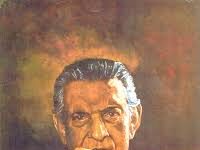Dear Jayamohan,
I have been enjoying your videos regularly, and I also happened to watch today’s video on the book “Humanity—A Hopeful History.”
But this is different from what I have been reading for the past few weeks. I finished reading one of your favorite Russian novels, “Crime and Punishment” (the other is “Anna Granina”), and was wondering what to start next. Your video today was perfect for deciding on my next book. My first thanks for that.
As far as I understand, you have an extreme interest and love for Russian writers, and your criticism is that Western writers sow negative thoughts.
Accordingly, in today’s video, I interpreted your message as illustrating how figures like Yuval Noah Harari (Sapiens), Richard Dawkins (Selfish Genes), Charles Darwin, and Sigmund Freud sow negative thoughts to gain fame.
If you look at it that way, it seems to me that even your celebrated novels like “Crime and Punishment” and “Anna Granina” are about negative thoughts like “suffering and the struggle of human existence.”
So, should readers like me interpret your two-pronged approaches as representing your “evolution”?
Could my interpretation of novels like “Crime and Punishment” and “Anna Granina” be incorrect? I am eager to know. I am sure that it will greatly help my next stage of development.
Looking forward to your reply,
Ramu
Chennai
Dear Ramu,
There is no great literature that does not present a grand picture of evil. The Ramayana, the Mahabharata, the Iliad, and the Odyssey all depict evil. Their primary focus is on the inherent evil in human nature. Literature is actually written to fight against it. They discuss ways to overcome it. But their central vision is the victory of good over evil.
The protagonist, the embodiment of good, would have triumphed in old literature. Good would have been depicted as a divine force, and it would have been depicted as conquering evil. When modern literature emerged, the heart of the protagonist became the arena where good and evil clashed. Such is the depiction in the works of outstanding writers like Tolstoy, Dostoevsky, and Thomas Mann. How the characters fight and overcome the evil and darkness within themselves makes them outstanding literature.
Crime and Punishment (Raskolnikov) and Resurrection (Nehlyudov) are excellent examples of this. These books also depict the ultimate victory of good. That victory is within a soul. They demonstrate the victory of good over evil through forgiveness, purification, and sacrifice.
Literary works sometimes stop at merely depicting evil. They neither normalize evil nor present it as the truth; instead, by depicting wickedness in a certain way, they guide the reader toward good.
Jeyamohan











